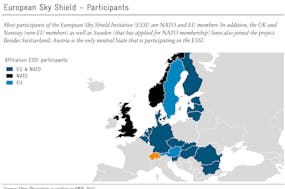A friend in London complains he has grown so sick of hearing about the corona crisis he almost looks back nostalgically to the days when every news broadcast was monopolized by Brexit.
Unlike coverage of the UK’s sometimes fractious relationship with its European neighbors, the corona virus is not just a national, or even regional, pre-occupation, but a global one. And now, as the disease has made its way westwards from Asia, attention has shifted from death tolls to how the world should prepare for what follows.
Which shops should reopen first? What will be the long term social and economic impact of the pandemic? When best should kids return to school? From Vienna to Vancouver, these are just some of the questions facing policymakers.
Too swift a return to normality could trigger a relapse or a second wave. But the long term financial, economic and probably social consequences of remaining on near permanent lockdown are even more harrowing. A fine balance must be struck, based on national and regional circumstances.
Just as relevant here
Switzerland is no exception. Late April brought a welcome initial relaxation of the social distancing rules imposed several weeks earlier. But what should come next?
This year’s extraordinary events have prompted fulsome consideration by pundits around the world. The experts at Avenir Suisse are no exception. In recent days, they have produced a stream of individual blogs and deeper group reports examining how Switzerland should proceed.
With the immediate battle to ‘flatten the curve’ of infection apparently won, the focus is now on controlling the disease and reducing the reproduction rate to avoid recurrals. That means much more testing, along with widespread contact tracing. Some issues of civil liberties and data protection will be raised, but such concerns can be overcome, Avenir Suisse’s specialists say. And better provision should also be made for future pandemics.

Testing and widespread contact tracing should help to keep the disease under controll. (Ryoji Iwata, Unsplash)
Liberal values must be protected
More broadly, the corona crisis and the unprecedented government intervention provoked must in no circumstances serve as a pretext for lasting dirigisme.
So current special measures must be treated as strictly temporary, says Avenir Suisse. The burden of proof, for example, to demonstrate rules on social distancing are being observed needs to be reversed. Rather than shops seeking special permission to reopen, all retailers should be allowed to do so immediately – and then be subject to spot checks and other scrutiny to determine they are not endangering public health.
Where necessary, pre-pandemic restrictions, such as on working hours and shop opening times, should be relaxed to avoid peaks and ensure smooth distribution of goods. That includes temporarily easing Switzerland’s severe limits on road freight and drivers’ hours at the wheel.
To avoid social congestion, border crossing should be facilitated for the thousands of French, Italians and German who each day enter Switzerland for work – accounting for some 6 percent of the total workforce. The elimination of tariffs on industrial imports, already in the pipeline, should be implemented immediately. And there is scope for greater flexibility in the health system, as well as moving more public services online.
Finally, citizens are entitled to greater transparency on what this extraordinary period will mean in terms of additional financial burdens – and how (and how quickly) the vast additional public sector debt being accrued will be repaid. The country is fortunate in being prosperous and lightly indebted by international standards. That does not mean, however, that even Switzerland, and its current and future citizens, will go anywhere near unscathed from the aftermath of the corona crisis.





